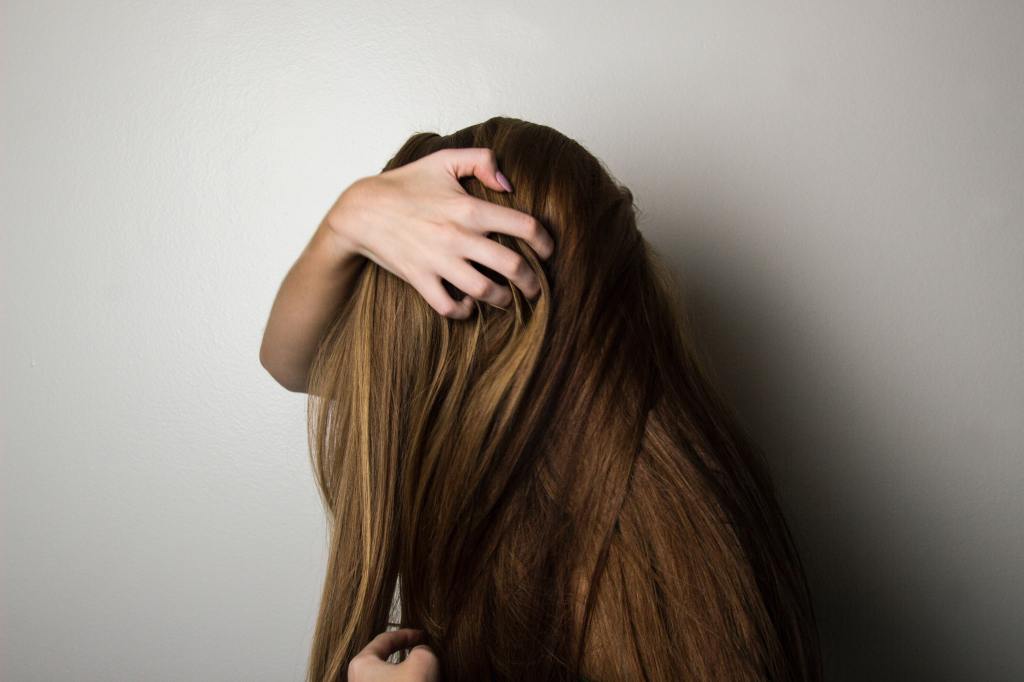
Hi all! I hope everyone that is reading this is doing as well as they can be in this crazy world.
I am over here living in what I feel is still a broken body due to COVID-19. It has been a 10 month roller coaster ride and I want to get off. I do realize that I do not have it as bad as others, but I am not back to 100% of my normal self yet.
COVID-19 is new and here to stay. There are many others like me who have gotten it and have been left with some unfortunate after-effects. Hair loss is one of them and I wanted to talk about it in this post.
COVID-19’s aftermath(in some)
All viruses can cause lingering issues after people recover from them. The difference with COVID-19 is that it seems to happen more frequently.
The term, “long haulers,” is given to people who have had the new virus and have continuously experienced symptoms for at least four weeks. There are many different symptoms that people experience as COVID-19 long haulers. These include the following:
- Elevated temperatures.
- Skin conditions- Rashes, a mottled appearance, swelling, dryness and more.
- Nausea and/or stomach pain.
- Diarrhea.
- GERD.
- Persistent loss of taste and/or smell.
- Weight loss.
- Allergy-like symptoms- This may include congestion, post nasal drip, itchy throat, itchy nose and itchy eyes.
- Ear issues- This includes ear aches, fullness, tinnitus and ear infections.
- Shortness of breath.
- Chest pain/aching.
- Fatigue.
- Hair loss (what this post is about!).
There are even more symptoms that long-haulers say they experience.
If you are reading this and you were just diagnosed or have not had it yet, remember that not all people have after-effects. Many people get through their infection with the virus just fine and are not left with any lingering symptoms.
There are currently a few theories as to why some people are left with these symptoms after having COVID-19 but no straight answers. Luckily, it is being studied more recently as many people are reporting that they are long-haulers.
While no official treatments exist currently for post-COVID issues, there are supplements and medications that can be taken that may help. There are support groups and even post-COVID clinics that can be of help.
Cause of hair loss after a COVID-19 infection
Hair loss post-COVID does not happen to everyone, thankfully. To those it does happen to, it can be very alarming and devastating.
Alyssa Milano, the actress, detailed her experience with hair loss after having COVID-19. She even put up videos of lots of hair coming out when brushing it. This may have been alarming to viewers and fans but it is the reality that some people face or have faced.
The exact name for post-COVID hair loss is called, telogen effluvium. Telogen is the name of one of the growth phases our hair goes through. It is when our hairs are resting instead of growing and it lasts for 2-4 months. Then the hairs fall out.
People who get hair loss a couple of months after having COVID-19 may be surprised by it and not connect the two right away. They are indeed connected though.
Telogen effluvium occurs because of stress to the body. COVID-19 puts our bodies through a lot (some more than others) so it is not too hard to believe that it may cause some hair loss.
Other things that can cause this type of hair loss include other illnesses, pregnancy, severe weight loss, medications and mental stress.
What can be done about post-COVID hair loss
Like with other types of hair loss, there are various ways to go about dealing with it. The following are some options that one may have when losing hair from telogen effluvium:
- Wait for the hair to grow back in- With telogen effluvium, the hair will usually grow back over time. It may be a good idea to wait a while if you can stand it. You may be able to get your hair cut/styled in such way that attention is not drawn to the loss that is happening.
- Shave it all off- This is an option if it is going to be falling out anyway and you do not mind not having any hair for a while.
- Wear wigs- There are so many wig options out there to choose from. You could experiment with them while you are dealing with hair loss.
- Minoxidil (or Rogaine)- This is a hair growth treatment that comes in liquid and foam form. One must be aware though that it comes with side effects such as itching and swelling.
- Fixing nutritional deficiencies- If the hair loss is associated with one’s diet, trying to get that sorted out may help.
- Changing or reducing medications- If a medication (s) is causing the hair loss, one can talk to their doctor about switching to a different one or reducing the dosage level if possible.
- Mental health help- If mental health is causing the hair loss, it is important to get help for it. This could be in the form of counseling and/or medication.
- Taking supplements- There are supplements out their that are said to help with hair growth. Be aware of any side effects they may have and the fact that it they may not work at all.
- Essential oils(possibly)- There are some essential oils that may help with hair growth. They need to be diluted and one can do this easily by putting a few drops in with their shampoo/conditioner.
Did I have the hair loss side effect?
Unfortunately….I did.
In mid-May (two months after getting COVID-19), I ended up losing hair in my temple area. It was pretty devastating to say the least.
I was lucky that the hair loss was not as bad as what other people have had to go through after having COVID-19 but it was definitely noticeable. At the time of Googling it, I came across the hair loss as possibly being due to hyperthyroid (that can happen after a virus) but now I know that it is a post-viral thing.
I knew that putting Rogaine on the area was an option that many have had success with but I was too worried about the irritation I would probably get from it. This prompted me to just roll on diluted rosemary essential oil to the areas twice a day with the idea that it most likely was not going to yield any spectacular results.
I am happy to say that a lot of hair has grown back in that area and it looks just like it used to. If it was the rosemary oil or time, who knows. I am not complaining.
In conclusion, hair loss can happen
Hair loss may be something you deal with after having COVID-19. Just know that there are some things you can do for it and that you are not alone.
Keep staying safe everyone! Brighter days will be ahead.
Some sources-
https://www.health.harvard.edu/a_to_z/telogen-effluvium-a-to-z
https://www.uspharmacist.com/article/common-supplements-might-reduce-covid-severity
Thanks for reading!
#covid19 #hairloss #hairgrowth #longhaulers #symptoms #postviral #viriology

definitely no fun — but can always be worse… stay wel ❤
LikeLike